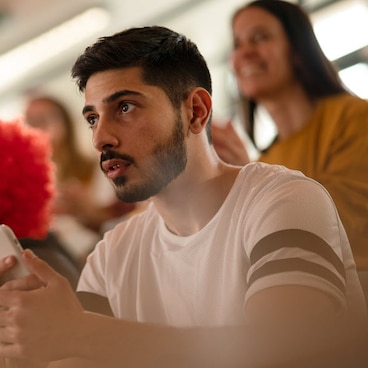
Many NCAA women golfers are inching toward a pivotal moment—going pro. While perfecting their swing on the green, this transition requires them to up their financial skills. As professional hopefuls like Oregon’s Kiara Romero step closer to the Ladies Professional Golf Association (LPGA), being successful will require just as much financial know-how as athletic talent.
Going pro can mean earning more money than ever before. That means learning how to budget, save, and invest, to build a solid financial foundation and make the most of your earning power off the course. And the combination of fewer tournaments with smaller purses, means women especially need to make sure they are making the most of their winnings. Fortunately, organizations like the LPGA Foundation and the Sports Financial Literacy Academy (SFLA)/Money Smart Athlete1 offer programs customized to the needs of athletes.
“At the SFLA/Money Smart Athlete, we help athletes develop and maintain strong financial best practices by providing education, tools, and personalized guidance tailored to the unique challenges of a sports career,” explains Athena Constantinou, Director of International Operations at the SFLA. “This peace of mind enables them to focus more on their sport and less on their bank account.”
According to Athena and the SFLA, there are three things future LPGA players, like Kiara, need to keep in mind as they consider a professional transition:
1. The cost of doing business: Beyond the fairway
Golf is an expensive sport. And after graduation, universities no longer foot the bill. Competing professionally means frequent travel, caddy fees, entry fees, and equipment costs, which is a lot to handle on your own for the first time.
“An often overlooked yet crucial benefit of financial literacy is its impact on an athlete’s mental health and emotional resilience,” says Athena. “Financial uncertainty is one of the leading causes of stress, and for young golfers who are already navigating the pressures of competition, travel, and performance expectations, money anxiety can be a major distraction.”
According to Athena, one of the most important steps in managing this transition and lightening the mental load is building a trusted financial support team including a financial advisor, tax expert, and lawyer. This guidance is especially relevant for women, who often face added pressure due to the difference in compensation between LPGA and PGA players.
2. Mind the (pay) gap
The SFLA acknowledges the challenges of the gender pay gap. One of the most significant challenges female golfers face is this disparity in prize money, and number of tournaments, compared to male counterparts. The LPGA has made strides to increase winnings, but it still doesn't match the men’s PGA Tour. Hyo Ju Kim, winner of the LPGA's 2025 Ford Championship, took home $337,500 from a $2.25 million total pot while Justin Thomas raked in $3.6 million from his PGA Tour win.
Players should be mindful of this issue, and plan accordingly when estimating future income.
3. Sponsorships and NIL: A Vital Revenue Stream
While athletes often rely heavily on athletic salaries, contracts, and prize money as their primary source of income, Athena says that financially literate athletes understand the importance of diversifying their earnings to build lasting wealth by exploring alternative revenue sources, such as brand partnerships.
Having sponsorships and Name, Image and Likeness (NIL) deals are ways to increase earnings beyond tournaments. This becomes especially important for women athletes who rely more heavily on these alternate revenue streams to help make up the pay gap. Top NCAA-turned-LPGA golfers like Rose Zhang have used NIL deals with major brands like Adidas and Callaway to increase their income.
Securing these deals requires more than athletic prowess; according to Athena, building a personal brand that resonates with fans and sponsors alike is key to these partnerships, ensuring they extend far beyond a single endorsement. Money smarts programs, as well as scholarships and grants from the LPGA Foundation, can give athletes the skills to navigate these opportunities and put more money in their pockets.
Invested in the Game explores the stories of remarkable people who are moving the game of golf forward
Investing demands grit and the relentless pursuit of excellence—just like the great game of golf. In Schwab’s new podcast, Invested in the Game, host Mason Reed, a Schwab managing director and self-proclaimed golf fanatic, gleans insights from some of the remarkable people moving the game forward. Listen now at schwab.com/thegame or wherever you listen to podcasts.
Beyond the Green
A financial game plan pays off no matter what the profession, especially in self-employed jobs like freelance writing, social media marketing, graphic design and others. Startup costs, marketing expenses, and the unpredictability of income should be closely watched. Similarly, these careers often benefit from professional help with budgeting, tax planning and managing business expenses so people can stay focused on honing their craft. Schwab Moneywise® also offers the essentials to help you learn how to budget, save, and invest, putting you on track to achieve your life goals.
As talented female NCAA golfers go pro, financial smarts have become another club they should keep in their bag to ensure they can take control of their future. Mastering how to manage earnings, leveraging sponsorships and taking part in educational programs can mean the difference between just winning tournaments and building a secure financial future when they’re ready to step away from competition.


